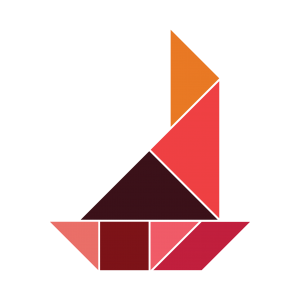Fostering Creative Thinking
 Coursera: Creativity Toolkit I: Changing Perspectives & Creativity Toolkit II: Creative Collaborations
Coursera: Creativity Toolkit I: Changing Perspectives & Creativity Toolkit II: Creative Collaborations- Illinois Catalog BADM 590: Fostering Creative Thinking
- Offered in Summer Term (May-Aug)
This course is part of the Entrepreneurship & Strategic Innovation Specialization.
Course Description
This course will examine when, why, and how we can be creative. It examines the cues that trigger us to consider being creative. It provides a road map of the creative process—the process of changing our perspectives—and the kinds of outcomes that result from creativity. It examines how we can go through the creative process more efficiently and more effectively by examining what is changing about our thinking and how we can make those changes. The end result is more flexible thinking that can be used to recognize and develop new opportunities.
This course is designed to make you a better creative collaborator. Creativity can require us to bring together knowledge from different areas, often known by different people. We need to foster effective collaboration rather than have those differences lead to misunderstandings and conflict. The ideas that we generate, individually or collectively, will be evaluated by others, such as bosses, funders, and customers. These different audiences likely have different concerns when they hear about your ideas and are likely to evaluate ideas differently than you do. We need to pitch our ideas in ways that get others excited about them rather than bored or confused by them so that we can expand the group of collaborators in our creative efforts.
Course Goals and Objectives
- Initiate creativity more frequently and appropriately.
- Think more flexibly.
- Progress through the creative process more efficiently and systematically.
- Generate more and better creative products.
- Better persist in the face of rejection.
- Be able to establish team norms that allow for creativity.
- Better evaluate creative ideas.
- Communicate new ideas more effectively.
Topics of this course
- Module 1: Being Creative
- Module 2: Raw Materials and End Products
- Module 3: Tools for Thinking
- Module 4: The Creative Journey
- Module 5: Team Creativity
- Module 6: Creative Conflict
- Module 7: Evaluating Ideas
- Module 8: Pitching Ideas
Course Materials
There is no required textbook for this course. There are required readings listed in the agendas in each module. Links will be provided in the appropriate modules for access to the readings via the university library system. These readings are:
- Amabile, T. M. (1998). How to kill creativity. Harvard Business Review.
- Bazerman, M. H., & Tenbrunsel, A. E. (2011). Blind spots: Why we fail to do what’s right and what to do about it. Princeton University Press.
- Cialdini, R. B. (2001). The science of persuasion. Scientific American
- Heath, C., & Heath, D. (2007). Made to stick: Why some ideas survive and others die. Random House.
- Markman, A. (2012). Smart thinking: Three essential keys to solve problems, innovate, and get things done. Penguin.
- Mueller, J. (2017). Creative Change: Why We Resist It… How We Can Embrace It. Houghton Mifflin Harcourt.
- Nemeth, C. J. (1997). Managing innovation: When less is more. California management review, 40(1)
- Page, S. E. (2008). The difference: How the power of diversity creates better groups, firms, schools, and societies. Princeton University Press.
- Staw, B. M. (1995). Why no one really wants creativity. Creative action in organizations
Live Session Schedule (Tentative)
May 31st, 2017 – July 25th, 2017
| Thursdays | 10:15 AM – 11:30 AM, 8:15 PM – 9:30 PM US Central Time |
Course Elements
IN COURSERA
- Lecture Videos.
- In-Video Questions.
- Practice Quizzes.
- Module Quizzes.
- Peer-Graded Writing Assignment.
IN COMPASS 2G
- Individual Assignments.
- Team Assignment.
- Forum Discussion.
- Peer Evaluation
- Live Sessions: with the instructors occur every week.


